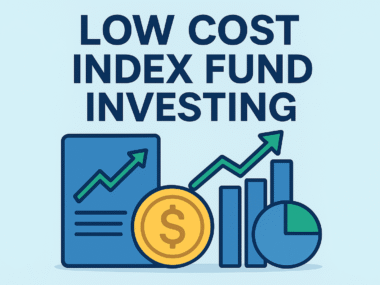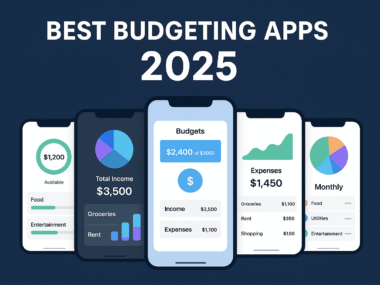Personal Loan vs Home Equity Loan: Which One Is Right for You?
Introduction
In today’s world of rising living expenses, housing costs, and unpredictable emergencies, many households face situations where borrowing money becomes necessary. Personal Loan vs Home Equity Loan! Whether it’s consolidating high-interest debt, covering medical expenses, or funding a home renovation, choosing the right type of loan can make a huge difference in your financial health. Cheapest Auto Insurance
Two of the most common financing options available to homeowners are personal loans and home equity loans. While both provide access to funds, the terms, requirements, risks, and benefits vary significantly. Understanding these differences is key to making a smart borrowing decision.
Affordability is more important now than ever before. With interest rates fluctuating and lenders becoming more selective, borrowers need to evaluate not only the cost of borrowing but also the long-term financial impact. In this comprehensive guide, we’ll break down personal loans vs home equity loans—how they work, when to use each, and how to choose the one that fits your goals. Best Budgeting Apps 2025
What is a Personal Loan?
A personal loan is an unsecured loan offered by banks, credit unions, and online lenders. Unlike a mortgage or auto loan, a personal loan doesn’t require collateral, meaning you don’t have to pledge your house, car, or savings as security. Low Cost Index Fund Investing
-
Loan amount: Typically ranges from $1,000 to $100,000, depending on creditworthiness.
-
Repayment terms: Usually 2–7 years.
-
Interest rates: Fixed or variable, often higher than secured loans.
Pros of Personal Loans:
-
No collateral required.
-
Quick approval and funding (sometimes within 24 hours).
-
Fixed monthly payments for predictable budgeting.
Cons of Personal Loans:
-
Higher interest rates if you have poor credit. First-Time Homebuyer Loans with Bad Credit
-
Smaller borrowing limits compared to home equity loans.
-
Shorter repayment terms may mean higher monthly payments.
What is a Home Equity Loan?
A home equity loan is a secured loan that allows homeowners to borrow against the equity they’ve built up in their property. Equity is the difference between your home’s market value and your remaining mortgage balance. First-Time Homebuyer Loan Programs
-
Loan amount: Usually 75%–85% of home equity.
-
Repayment terms: 5–30 years.
-
Interest rates: Typically lower than personal loans, since the home serves as collateral.
Pros of Home Equity Loans:
-
Larger borrowing capacity.
-
Lower interest rates than unsecured loans.
-
Interest may be tax-deductible (if used for home improvements, subject to IRS rules).
Cons of Home Equity Loans:
-
Risk of foreclosure if you default.
-
Requires home appraisal and more paperwork.
-
Approval process is longer than personal loans.
Personal Loan vs Home Equity Loan: Key Differences
| Feature | Personal Loan | Home Equity Loan |
|---|---|---|
| Collateral Required | No | Yes (home) |
| Approval Speed | Fast (1–7 days) | Slow (2–6 weeks) |
| Borrowing Amount | $1k–$100k | Based on equity, often higher |
| Interest Rates | Higher (6%–36%) | Lower (3%–10%) |
| Repayment Terms | 2–7 years | 5–30 years |
| Risk Level | Lower (no asset at stake) | Higher (risk of losing home) |
When Should You Choose a Personal Loan?
A personal loan may be the better option if you:
-
Need funds quickly for an emergency.
-
Don’t have significant home equity.
-
Want to consolidate high-interest credit card debt.
-
Prefer a shorter repayment period with fixed terms.
-
Want to avoid risking your home as collateral.
When Should You Choose a Home Equity Loan?
A home equity loan is often better if you:
-
Need a large loan amount (e.g., $50,000+).
-
Are planning home renovations that may increase property value.
-
Want a lower interest rate compared to personal loans.
-
Have strong home equity and stable income.
-
Don’t mind a longer repayment timeline.
How to Qualify for a Personal Loan
To qualify for a personal loan, lenders typically require:
-
Good credit score (usually 660+).
-
Proof of income (pay stubs, tax returns, or bank statements).
-
Low debt-to-income ratio (DTI).
-
Valid ID and proof of residence.
Applicants with excellent credit may qualify for interest rates as low as 6%–8%, while those with poor credit may face rates above 25%.
How to Qualify for a Home Equity Loan
Since a home equity loan is secured, lenders require:
-
At least 15%–20% equity in your home.
-
Good to excellent credit score (typically 680+).
-
Stable income and employment history.
-
Home appraisal to determine property value.
Borrowers with strong financials often receive better rates and can borrow larger sums.
Costs Involved: Personal Loan vs Home Equity Loan
Personal Loan Costs:
-
Origination fees (1%–8%).
-
Late payment penalties.
-
Prepayment penalties (in some cases).
Home Equity Loan Costs:
-
Appraisal fee ($300–$700).
-
Closing costs (2%–5% of loan amount).
-
Title search and attorney fees.
While personal loans may have fewer upfront costs, home equity loans usually offer lower long-term interest expenses.
Benefits of Personal Loans
-
Fast access to funds.
-
No home ownership required.
-
Simpler application process.
-
Ideal for smaller, short-term financial needs.
Benefits of Home Equity Loans
-
Higher borrowing limits.
-
Lower interest rates.
-
Longer repayment terms for manageable payments.
-
Possible tax benefits for home-related expenses.
Risks & Challenges of Personal Loans
-
Higher interest rates for bad credit.
-
Limited borrowing amounts.
-
May encourage unnecessary spending due to easy access.
Risks & Challenges of Home Equity Loans
-
Your home is at risk if you default.
-
Market downturns may reduce home equity.
-
Slower approval process compared to personal loans.
Personal Loan vs Home Equity Loan: Which is Better for Debt Consolidation?
-
Personal Loan: Best for small to medium debt (e.g., $5,000–$25,000). Faster approval and no collateral.
-
Home Equity Loan: Best for large, high-interest debts (e.g., $30,000+). Lower rates make long-term repayment cheaper.
Personal Loan vs Home Equity Loan: Which is Better for Home Renovation?
-
Personal Loan: Suitable for minor upgrades (bathroom remodel, small kitchen update).
-
Home Equity Loan: Better for major renovations (roof replacement, full kitchen remodel, adding a room).
Step-by-Step Guide: How to Apply for a Personal Loan
-
Check your credit score.
-
Compare lenders (banks, credit unions, online).
-
Pre-qualify for offers.
-
Gather required documents.
-
Submit an application.
-
Accept loan terms and receive funds.
Step-by-Step Guide: How to Apply for a Home Equity Loan
-
Calculate your home equity.
-
Check credit score and DTI ratio.
-
Request a home appraisal.
-
Compare lenders and loan terms.
-
Submit application with documentation.
-
Close the loan and receive funds (usually lump sum).
Comparison Table: Personal Loan vs Home Equity Loan
| Factor | Personal Loan | Home Equity Loan |
|---|---|---|
| Collateral | None | Home |
| Loan Size | Smaller | Larger |
| Interest Rates | Higher | Lower |
| Approval Speed | Fast | Slow |
| Best For | Emergencies, debt consolidation | Renovations, large expenses |
Websites and Tools to Compare Loan Options
-
Bankrate
-
NerdWallet
-
LendingTree
-
Credit Karma
-
Experian Loan Marketplace
These platforms help you compare rates, terms, and lenders.
FAQs about Personal Loan vs Home Equity Loan
1. Can I get both a personal loan and a home equity loan?
Yes, but lenders may evaluate your debt-to-income ratio carefully.
2. Which has a lower interest rate?
Home equity loans generally offer lower rates.
3. Which is easier to qualify for?
Personal loans—since they don’t require home equity.
4. Can I use a home equity loan for anything?
Yes, but tax deductions apply only if used for home improvements.
Conclusion on Personal Loan vs Home Equity Loan
Both personal loans and home equity loans provide valuable financing options, but the best choice depends on your financial situation. If you need quick cash without risking your home, a personal loan may be ideal. On the other hand, if you have substantial equity and need a large sum at a lower rate, a home equity loan is often the smarter choice.
Always compare lenders, calculate your repayment ability, and consider the risks before making a decision. Choosing wisely can save you money, protect your assets, and help you reach your financial goals with confidence.














